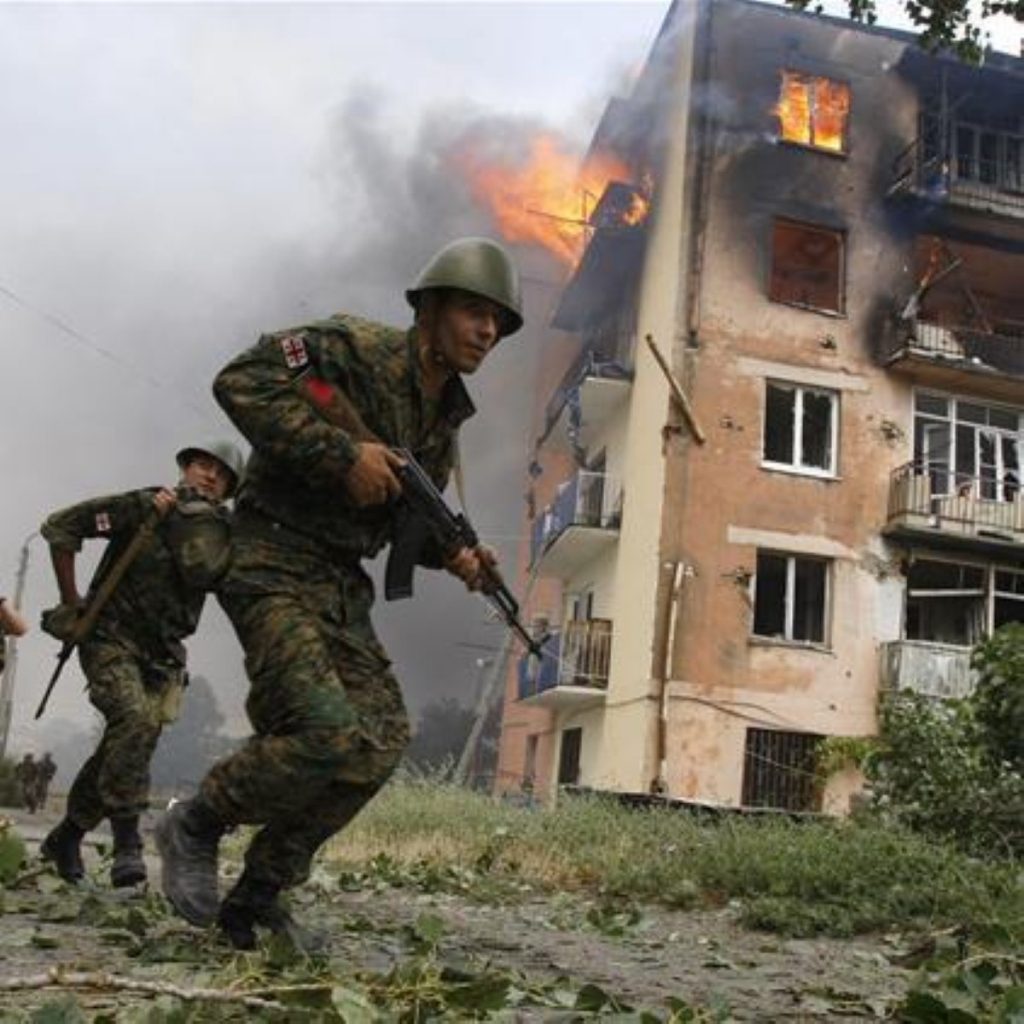Foreign Office continues efforts despite ceasefire hope
The Foreign Office is continuing diplomatic efforts in the South Caucasus despite an announcement from Russian president Dmitry Medvedev that he has ordered an end to the military operation.
Analysts are still unsure how significant the announcement is. Mr Medvedev allowed room for the “elimination” of any remaining hostile forces, despite Georgia having signed up to a ceasefire. He claimed to have punished Georgia, but left the door open to more attacks if Russian forces are exposed to more fighting
Fresh reports of bombings preceded the announcement, with a hospital reported to have been hit in the town of Gori.
A Foreign Office spokesperson contacted by politics.co.uk confirmed all current plans to deal with situation – including a Nato meeting today – are still in place.


Liberal Democrat Foreign spokesman Edward Davey said Russia’s announcement was “good news” but warned the EU to show “tough resolve” in negotiating a lasting peace.
“Russia must be made to realise that its actions have seriously damaged its reputation,” he said.
“As part of the rehabilitation of the region, any future peacekeeping force in Abkhazia and South Ossetia must be independent and not based on Russian forces.”
The UK’s special representative for the South Caucasus, Sir Brian Fall, has been sent to Tbilisi as part of a joint EU/OFCE operation. The operation is part of a wider mission involving the US, indicating western powers are coordinating efforts to halt the violence.
Early yesterday afternoon a meeting of the G7 – basically the G8 but without Russia – held a conference call about the situation, although Foreign Office sources were unable to give us a read out of what was said.
Tomorrow afternoon an extraordinary meeting of the EU will take place in Brussels, but the government is still committed to “fully engaging” with the UN to establish a lasting peace.
Statements released from the Foreign Office over the weekend became stronger as reports of the death toll rose.
Foreign Office minister Jim Murphy said: “It would be utterly unacceptable for Russia to try and destabilise a democratically elected government on its border with a view to any sort of regime change.
“The international community would view that extraordinarily dimly and would have diplomatic consequences for Russia.”
Gordon Brown said there was “no justification” for Georgia’s actions and argued there was “an immediate and pressing need to end the fighting and disengage all military forces.
“There is a clear responsibility on the Russian government to bring this conflict quickly to an end,” he continued.
Mr Brown has held meetings with French president Nicolas Sarkozy and Ban Ki-moon, the UN secretary general, to discuss the situation.
Tory leader David Cameron told reporters the Russian strategy of invading another country was “unacceptable” and warned against the “legitimate interests” argument as being “very dangerous”.
Speaking at a press conference today in his first major appearance since he returned from holiday, Mr Cameron called on the government to take forward a series of measures proposed by the Conservatives and said Britain needed to send out a “clear message” to Russia on its view of the situation.
President Medvedev’s announcement came after five days of fighting.
The Kremlin quickly confirmed Russian news agency reports the president had declared a unilateral ceasefire.
The news came hours before French president Nicolas Sarkozy, whose country holds the presidency of the European Union, arrived in Moscow to push for peace.
Once president Sarkozy had arrived, president Medvedev defended his country’s military action in South Ossetia, likening Georgia to a bloodthirsty animal.
He went on to tell a news conference Georgia’s army was guilty of ethnic cleansing in the breakaway province, whose situation he compared to Kosovo.
Speaking beside his French counterpart, Mr Medvedev said Georgian president Mikhail Saakashvili and his generals were “crazy people”.
“We must make a stand to stop them,” he told journalists.
Mr Sarkozy, in Moscow for talks ahead of a trip to Tbilisi to meet Mr Saakashvili, hailed the commitment from both sides not to use violence but stressed a number of goals were not yet achieved.
He called on Russia to respect and guarantee Georgia’s sovereignty.
“We are not at peace yet,” Mr Sarkozy explained.
“At this stage we have a temporary cessation of hostilities which is certainly significant. But the night is long and we want to have the best possible result.”









